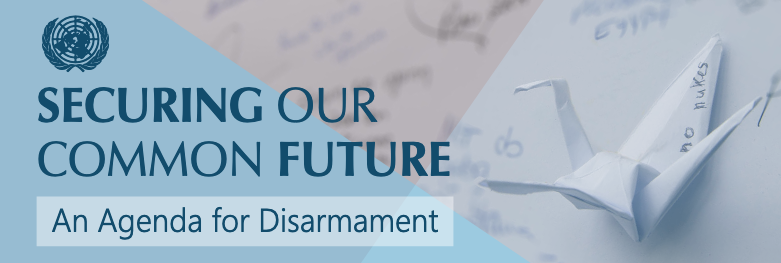UNODA Short Course New and Emerging Technologies and Nuclear Weapons
Overview
Developments in science and technology are central to international peace and security. Their perceived benefits to advance security, human development and prosperity, and Sustainable Development Goals make them attractive to State and non-state actors.
Reaping these benefits, however, does not come without risks. Rapid technological progress, often a powerful enabler of positive change, can also be used, misused, and repurposed in ways that endanger international peace and security. While challenges may arise from a single technological domain, such as malicious use of information and communications technologies (ICTs) to conduct cyberattacks, others lie at the complex nexus between different technologies used across the military and civilian spheres.
These risks fuel continuing concerns that new and emerging technologies are outpacing the capacity of normative and governance frameworks to manage them. Such concerns have led States to reinforce existing instruments and elaborate new ones to minimize harm to civilians and address the cross-cutting risks posed by converging technologies.
This course, offered as part of the “Sci-fAI Futures Youth Challenge” – made possible with financial support from the Government of the Republic of Korea – introduces four emerging technological areas: artificial intelligence and autonomy, ICTs, missile technologies, and space-based technologies. Each module examines recent advancements, how they challenge international peace and security with particular attention to disarmament and nuclear weapons, and the steps taken to mitigate these them, for instance through norms and regulations.

Objectives
Upon completion of this course, you will be able to:
- What opportunities and challenges posed by emerging technologies are; and
- What the linkages between certain emerging technologies and nuclear weapons are.
|
| Audience: The course is open to all interested audiences. |
|
| Components and Methodology: Each module takes approximately 20 minutes and can be completed at the learner’s own pace The course consists of two thematic modules:
The course is available in English and is held in the Disarmament Education Dashboard, thus participants need a computer or mobile device, with audio and reliable internet connection. No special software is required. |
|
| Certificate: Upon successful completion of thematic modules, including examination and course evaluation a certificate of completion will automatically be issued to the participant. |
Short-course Series
The UN Office for Disarmament Affairs Short Course Series aims at making available quality education material on disarmament, arms control, non-proliferation and issues cross-cutting with security, such as gender and development. The courses are targeted for and available to the general public at UNODA’S globally accessible e-Learning platform disarmamenteducation.org.
In line with the UN Secretary-General’s Agenda for Disarmament this short-course series aims to contribute to the implementation of the Sustainable Development Goals.


